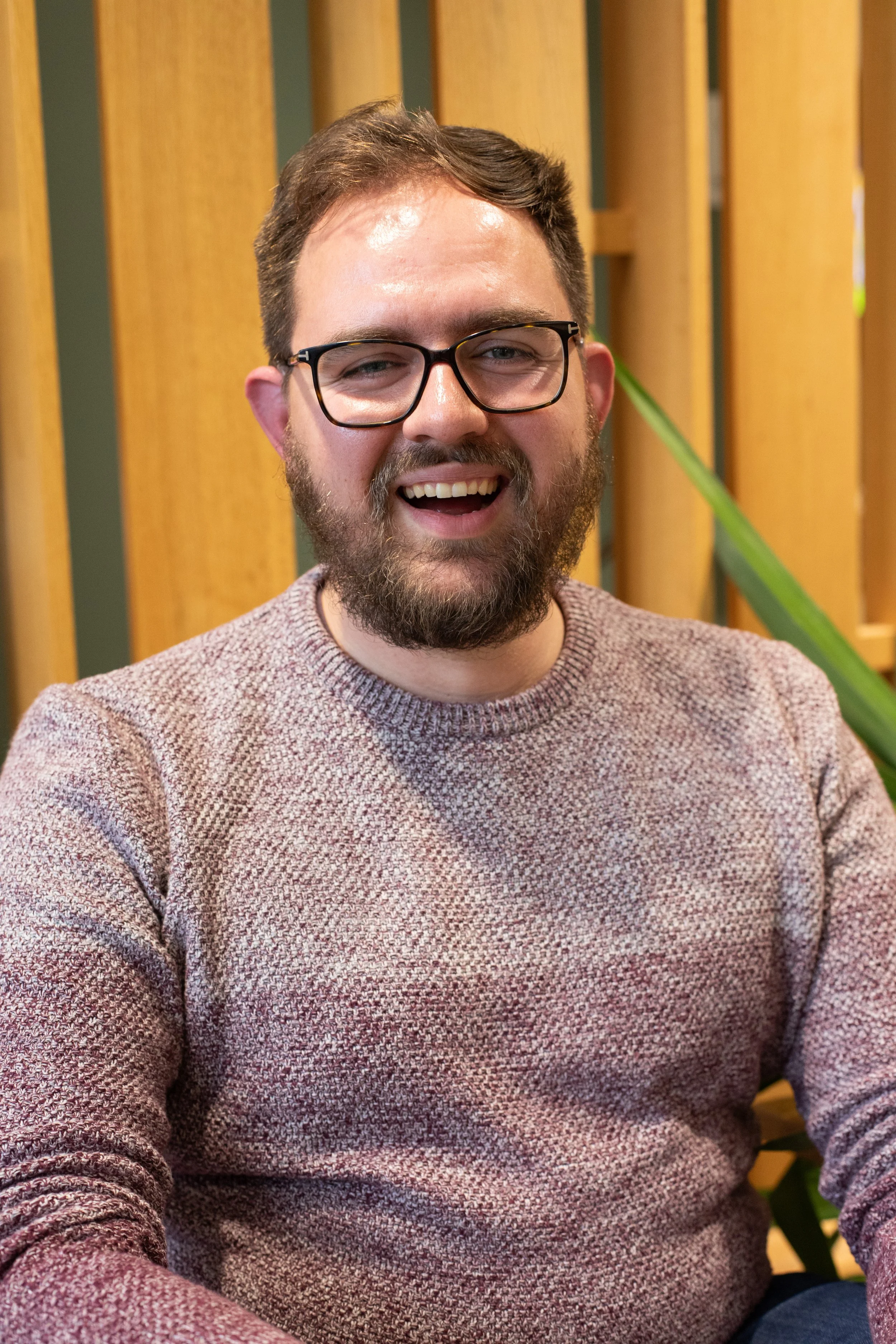
Who we are
Stephen Wright
About Me:
Hello and welcome! I’m Stephen Wright (He/Him), and I’m so glad you’re here. By day, I work as a Trauma Therapist in the PTSD unit of an Addictions and Mental Health facility, where I’ve helped many people navigate the aftermath of complex trauma and PTSD.
Since beginning my psychotherapy work in 2023, I’ve focused on supporting individuals through religious and spiritual trauma, faith deconstruction, and LGBTQ⁺ identity work, all through a trauma-informed lens. I’m committed to creating an affirming space for those wrestling with the fallout of purity culture, religious expectations, or navigating their sexuality and identity in the context of faith.
As a therapist living with lifelong hearing loss who once trained as an audiologist (MClSc, 2016), I bring lived experience of disability and resilience into our work. I’m fluent in English and American Sign Language, and I value having an accessible environment where you can bring your whole authentic self without barriers.
Therapeutic Approach:
I’m an eclectic, personable therapist who’s adaptable and curious by nature; I don’t come in with a one-size-fits-all approach. Having grown up as a pastor’s kid across conservative Baptist, Pentecostal, Presbyterian, and Anglican contexts, and even experiencing conversion therapy firsthand, I understand the many faces of faith‑based harm. That breadth of spiritual and religious exposure helps me connect deeply with clients wrestling with faith trauma, while always remembering that your journey is uniquely yours.
In our sessions, I stay highly attuned to both verbal and nonverbal cues, whether it’s a shift in your body language, a change in tone, or a pause, so that I can adjust in real time. I also bring a goal‑oriented mindset: together, we’ll co‑create clear, achievable objectives that reflect your own definition of healing and growth.
My approach is truly eclectic: I draw from Psychodynamic therapy to uncover the roots of old patterns, Internal Family Systems (IFS) to tend to your inner parts, Cognitive Processing Therapy (CPT) to work through traumatic memories, Emotion-Focused Therapy (EFT) to access and transform core emotional experiences, Dialectical Behaviour Therapy (DBT) to build emotion-regulation skills, and Cognitive Behavioural Therapy (CBT) to challenge and reframe unhelpful thoughts.
My ultimate aim is to hold a respectful, curious space for your story. I let you guide where we go next, meeting you exactly where you are and helping you define what faith, resilience, and wholeness look like for yourself.

Why Restored Roots?
Restoration begins at the roots.
The name Restored Roots Psychotherapy was born from a desire to honour the deep work of healing—work that often requires us to return to where things began. Roots speak to identity, belonging, heritage, and the early systems that shaped us—whether family, religion, or culture. They’re what ground us.
For many of my clients, those roots have been tangled by trauma, severed by rejection, or silenced by systems of shame. The word restored reflects the journey of reclaiming what was lost or hidden—voice, faith, identity, purpose. It's about returning to your core with gentleness and clarity, while also growing something new.
This is the heart of my work: helping people reconnect with themselves at the root—restoring what’s been harmed, and nurturing the possibility of becoming whole.


